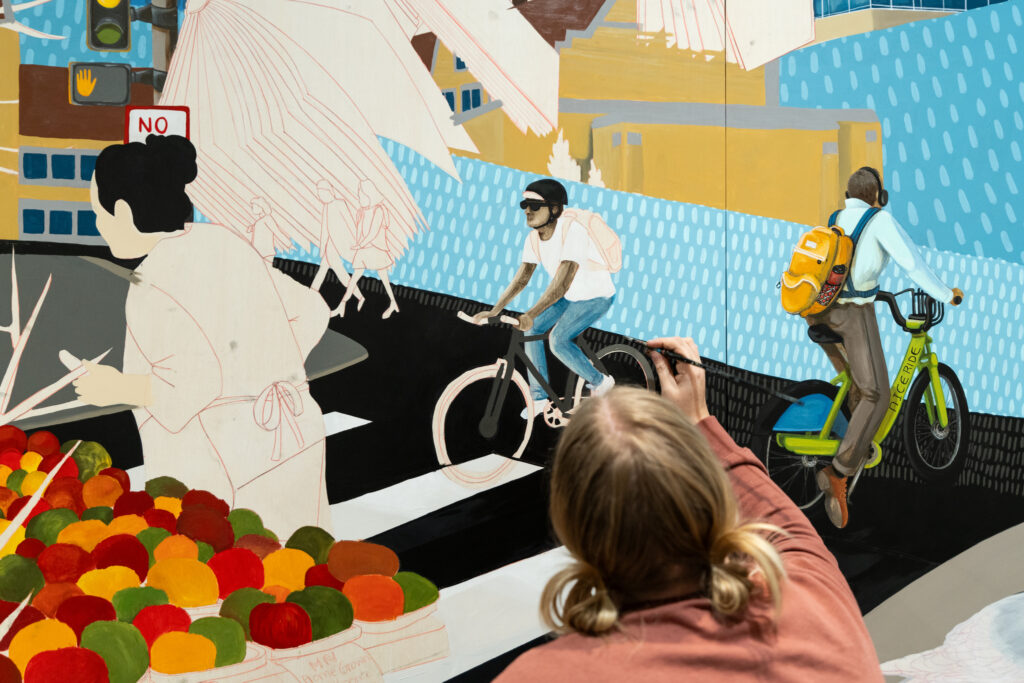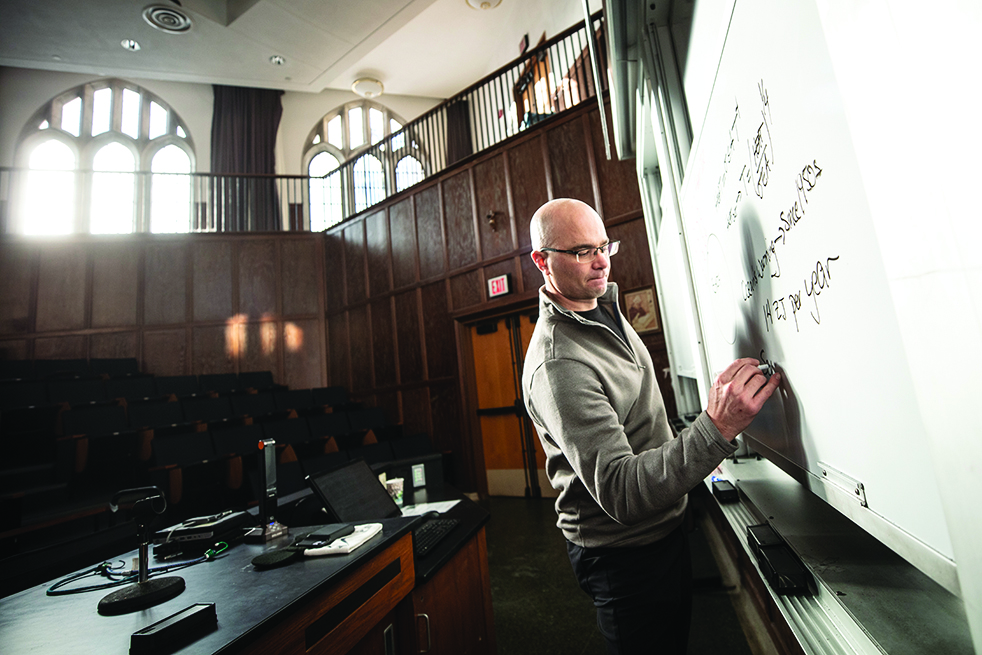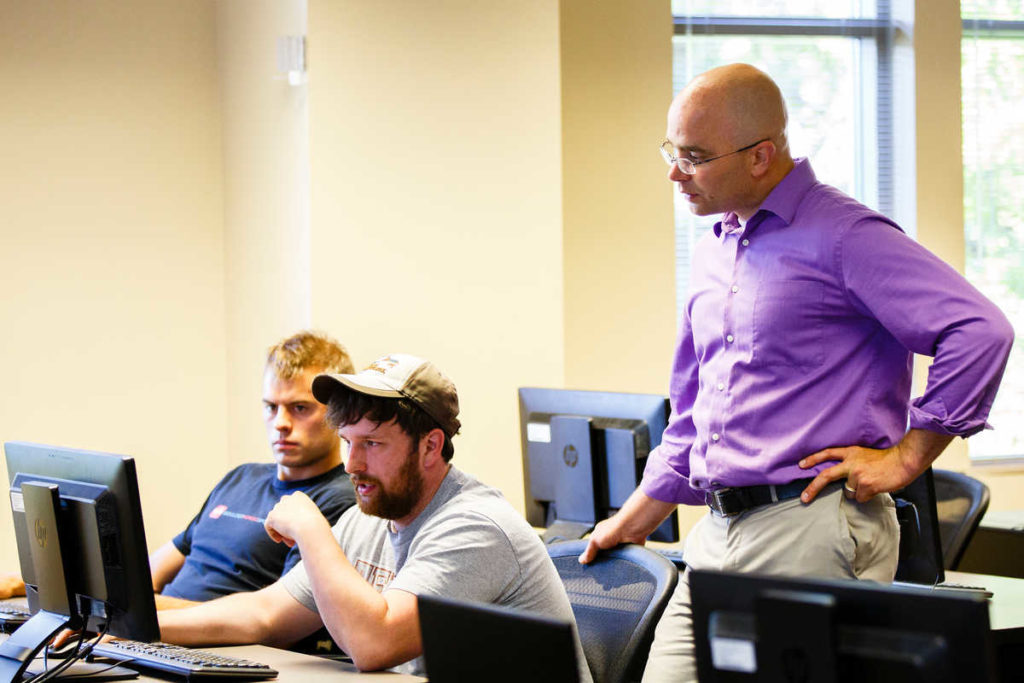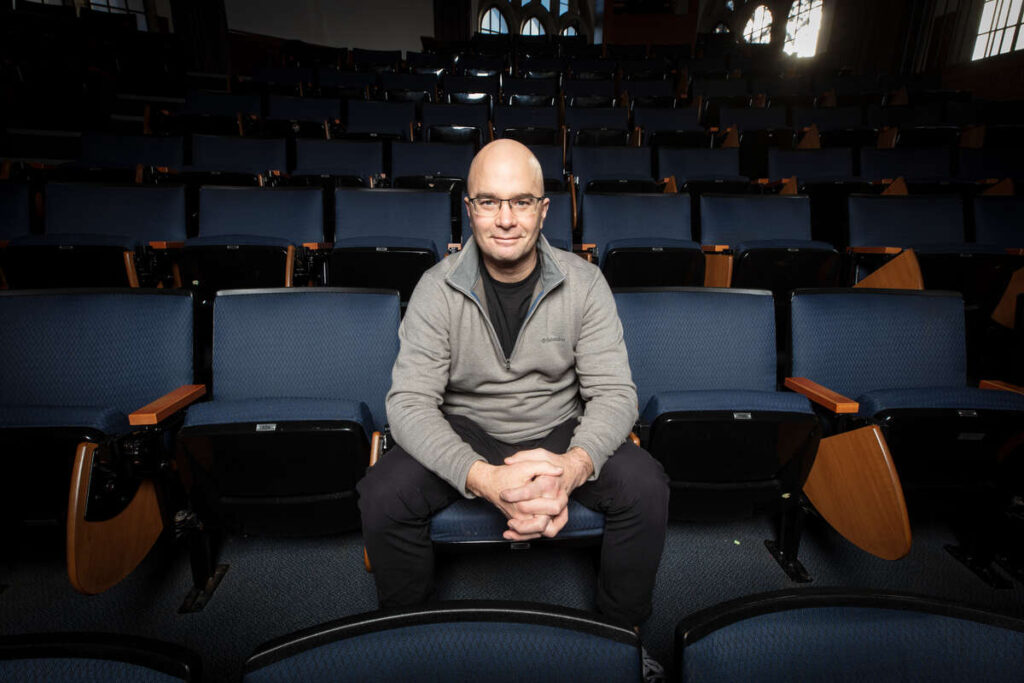This fall, student recruits from biology and environmental studies/science classes and other university groups will return to the site to plant saplings on a larger scale. According to Emms, “most of the planting – eight acres − will take place in the fall. The trees we planted in April will develop into a closed canopy. The fall planting will be to restore a combination of closed canopy forest, open oak savanna and possibly some prairie habitat, too.
The goal of the project is forest restoration and carbon sequestration (carbon capture and storage in planted trees and soil); student participation and research; creation of an “outdoor lab” for students to study and document the effectiveness of restoration efforts; promotion of interdisciplinary education; and improved wildlife habitat, watershed protection and recreational opportunities, such as walking paths.
The team estimates the restoration project will sequester one to five tonnes of carbon per acre per year, or 230 to 1,150 tonnes between 2012 and 2035, the year St. Thomas is committed to become carbon neutral per the American College and University Presidents’ Climate Commitment, signed by Father Dennis Dease, president of St. Thomas, in 2008.
The group worked in tandem with Great River Greening, a local nonprofit that leads and supports community-based restoration of natural areas.
The Fish Creek Natural Area Greenway extends from the Mississippi River in St. Paul, through Maplewood, to Carver Park in Woodbury. Once pasture land, the area now features rolling hills with wide views, prairie remnants, oak and aspen woodlands and a pine plantation.
Malia Foster, a freshmen majoring in environmental studies and geology, said, "I learned that even if I do only a little I still can make a difference. It was so nice to meet people who were excited about what they were doing. It's inspiring to meet people who are doing what they love and making a difference in their own, cool way."
Shawn Mars, a graduate student in the School of Education who helped plant trees, said that though he didn't play a role in the project's development, he "got a taste of how difficult it is to plan and fund a conservation effort." Although he doesn't consider himself an environmentalist, he feels "that St. Thomas, in particular professors like Dr. Lorah, have contributed to the well being of my future, and in return ... planting a few trees in the name of the university is the least I can do."
The team welcomes faculty, staff and students of all majors to help plant trees fall semester. For more information contact Lorah or Emms.







